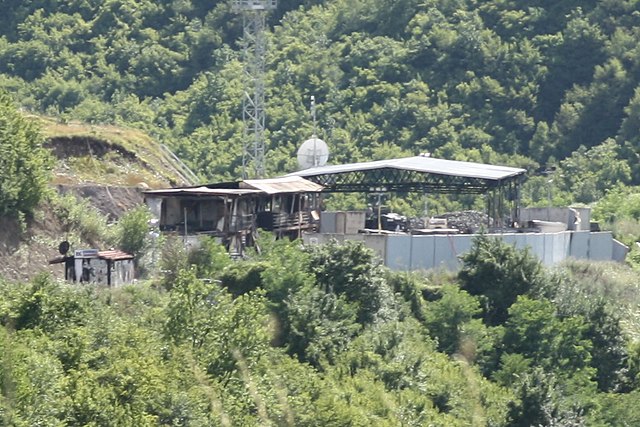North Kosovo crisis (2011–2013)
Clashes between the Republic of Kosovo and ethnic Serbs in northern Kosovo began on 25 July 2011 when the Kosovo Police crossed into the Serb-controlled municipalities of North Kosovo, to control several administrative border crossings. This was done without the Kosovo Police consulting either Serbia or Kosovo Force (KFOR)/EULEX. Though tensions between the two sides eased somewhat after the intervention of NATO's KFOR forces, they remained high amid concern from the European Union, which also blamed Kosovo for the unilateral provocation. On 19 April 2013, an agreement was signed in Brussels between representatives of Kosovo and Serbia. The 15-point document granted devolved powers to North Kosovo regarding economic development, education, healthcare and urban planning, and several mechanisms that allowed a certain autonomy in justice, policing and electoral matters.
Serb blockade of a road in North Kosovo
Jarinje administrative border crossing, burnt down on 27 July 2011
Kosovo Police and Italian Carabinieri from KFOR-MSU near the Ibar River Bridge on the Kosovo Albanian side.
Peaceful protests in Zvečan, 30 July.
North Kosovo ; also known as the Ibar Kolašin ; earlier Old Kolašin,, is a region in the northern part of Kosovo, generally understood as a group of four municipalities with ethnic Kosovo Serbs majority: North Mitrovica, Leposavić, Zvečan and Zubin Potok.
Serbian barricades in Zvečan, following the 2011 border clashes
Zvečan Fortress located in the northwest part of North Mitrovica
North Mitrovica
Leposavić







